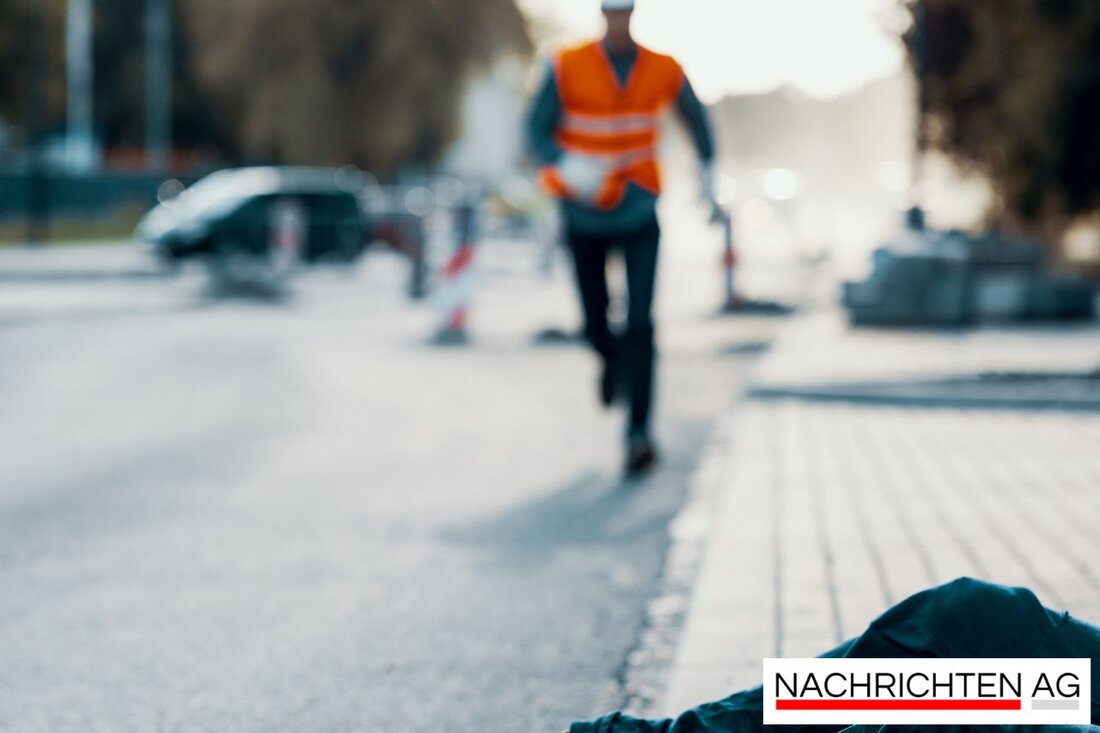Summer heat provides dangerous asphalt at Gueborn!

Summer heat provides dangerous asphalt at Gueborn!
Guteborn, Deutschland - A violent heat boost made the traffic situation on the country road between Gueborn and Hermsdorf in the Oberspreewald-Lausitz on Tuesday afternoon. Drivers reported dangerous conditions that suddenly occurred when the temperatures softened the asphalt so much that some vehicles “got into swimming”. The extreme summer heat created an acute danger situation, which caused the police to inform the responsible road construction carrier in order to secure the endangered area. Doesn't the weather with such extreme conditions like not a living life on that day?
Both the local police and experts from the traffic infrastructure area are increasingly struggling with the consequences of extreme weather conditions. The Federal Environment Agency points to the necessary technical measures to help to get such critical situations under control. Because in addition to the use of new asphalt mixtures, contemporary drainage systems and suitable embankments are important in order to adapt the transport infrastructure to the climatic changes. Such measures could alleviate future problems caused by storm, heat or heavy rain.
The challenges of heat and traffic
As the incidents from the region prove, the heat not only leads to problems for drivers, but also has far -reaching effects on the entire traffic landscape. Climate change currently requires rethinking in the road construction industry to make the infrastructure fit for the future. According to a report by engenieur.de, the focus is increasingly shifted to environmentally friendly and sustainable materials. Conventional asphalt causes fewer CO₂ emissions than concrete, but still has a significant ecological footprint. Measures such as the use of plant cubes and biobitumen can help reduce the negative environmental impacts and many experts rely on innovative approaches when researching
The fact that around 14 million tons of expansion spasters in Germany occur in large construction projects in Germany and over 80 % of which are recyclable, shows that rethinking is actually going. In the future, innovative solutions such as water -permeable asphalt could serve as key technologies in order to alleviate the problem of urban overheating and to promote rainwater failure. That could be a solution, not only for the infrastructure, but also for the entire environment.
other incidents and traffic safety
While the heat in Gueborn attracted attention, there were also other police reports in the region that were worrying. A serious accident occurred on the A13 when a Peugeot van came off the road and damaged a protective bank over more than 20 meters. Fortunately, the 21-year-old driver was not injured, but the fact that the property damage of around 26,000 euros shows the risks of road traffic.
In addition, there were reports of a fire between the districts of Peitzendorf and Reddern, which apparently testifies to arson. These incidents illustrate how important it is to take measures both in terms of transport and fire protection. The Federal Environment Agency warns that the adaptation of the transport infrastructure must be implemented in the long term in order to increase safety on the streets.
The challenges that the weather and the traffic situation put us are huge. It is all the more important that all actors - from local politics to road construction companies to the citizens - have a good hand and work together so that we can safely come through all weather conditions.
| Details | |
|---|---|
| Ort | Guteborn, Deutschland |
| Quellen | |
